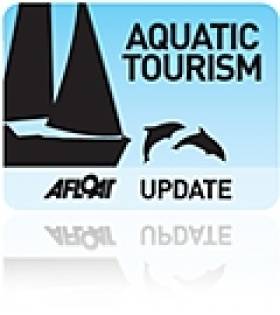Displaying items by tag: Fungie
New Harbour Charges Could End Trips to See Fungie
#IRISH HARBOURS - "Draconian" new charges for harbour users could bring an end to boat trips to see Dingle's most famous resident, according to The Irish Times.
Fungie the dolphin has been a mainstay of Dingle harbour for almost 30 years, but boat trips to visit him could cease to operate "with immediate effect" if charges of up to €9,000 are imposed "in advance" of the season.
Currently operators in the Dingle Boatmen's Association pay around €2,500 to use the harbour at the end of each season.
Association chairman Jimmy Flannery called on anyone working in tourism in Ireland to make submissions to the public consultation before the deadline next Friday 20 April.
As previously reported on Afloat.ie, yacht owners are also up in arms over the new charges proposed by Marine Minister Simon Coveney that could see their rates hiked by an incredible 800 per cent.
And the news comes not long after fellow Kerry harbour users protested proposed new bylaws to regulate their activities and impose new charges.
Marine Sector Could Boost Tourism
Writing in the Irish Examiner yesterday, Donal Hickey points Ireland's tourism authorities towards our abundant marine wildlife as a draw for potential visitors.
Hickey makes note of the "multi-million euro industry" built up around Fungie the dolphin in Dingle and eco-tours to see bird colonies on the Blasket Islands as examples of the kind of business that could be developed around Ireland's coastline.
He also hails "on-the-ball" Munster MEP Sean Kelly, who "did not have to look outside his own constituency to highlight the wonders of the sea shore, glorious beaches, deep-sea angling in east Cork, whale watching in west Cork, surfing along the beautiful beaches of Kerry and Clare."
The Atlantic Area Strategy that Kelly debated at the European Parliament could encourage greater enterepreneurship in the marine tourism sector and co-operation with other European maritime nations, Hickey writes.
The Irish Examiner has more on the story HERE.

























































